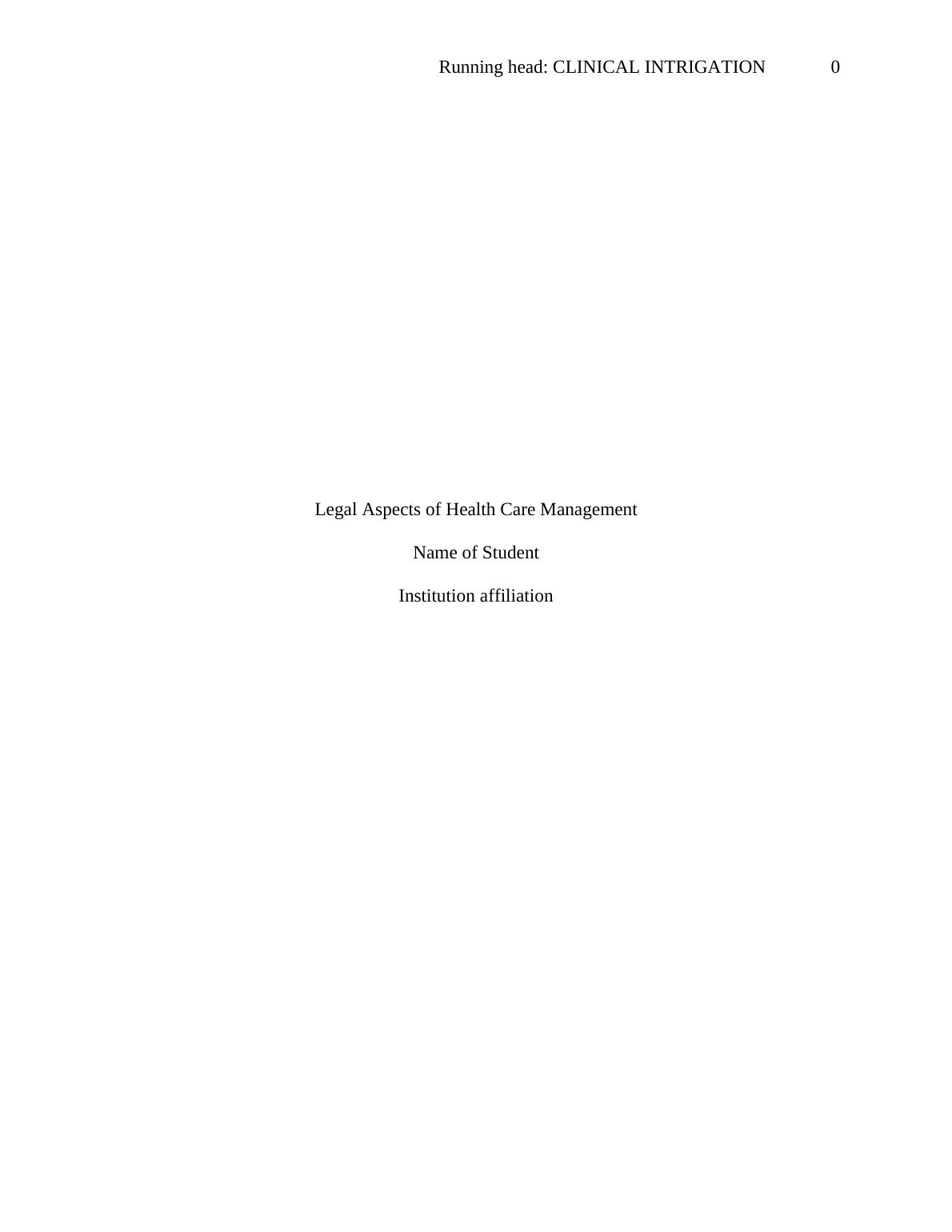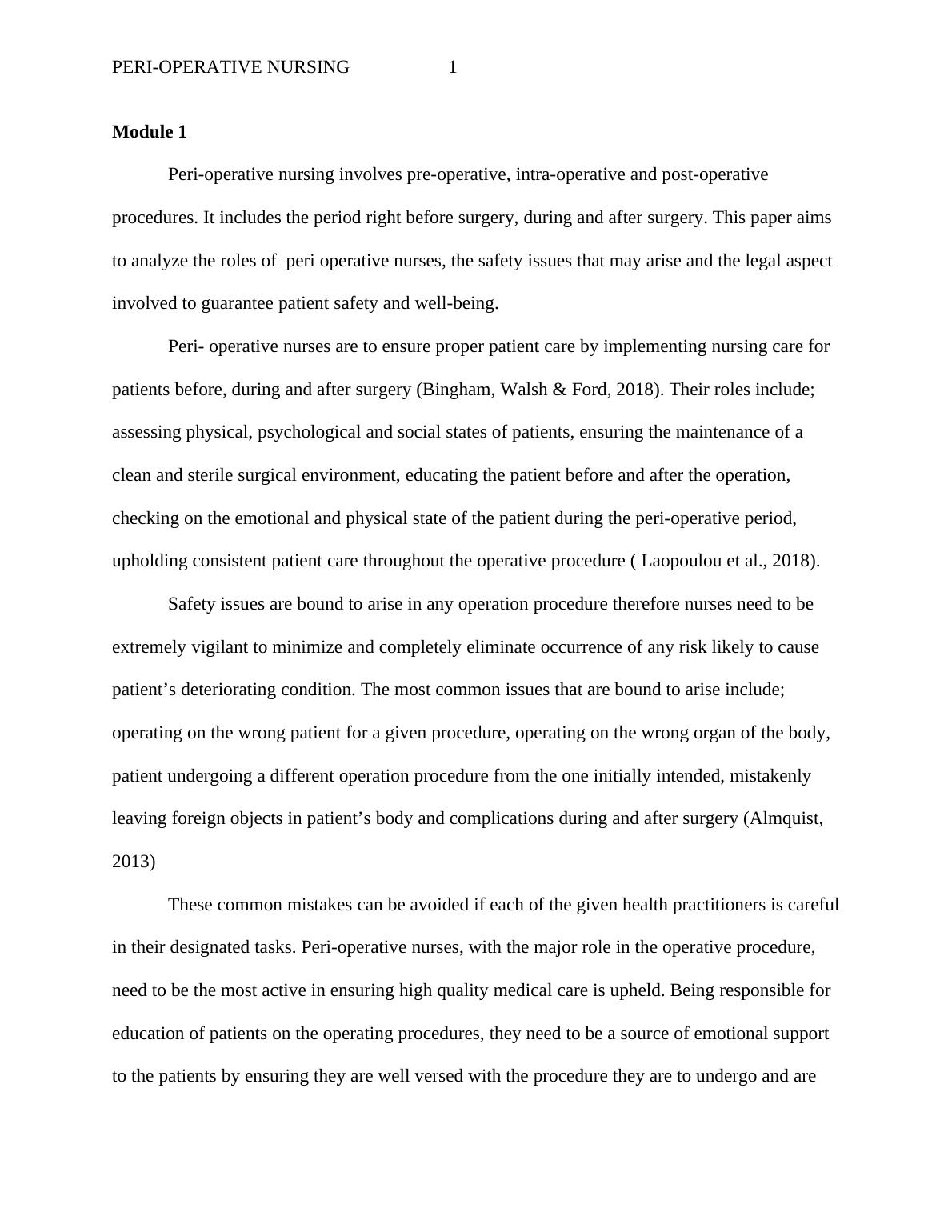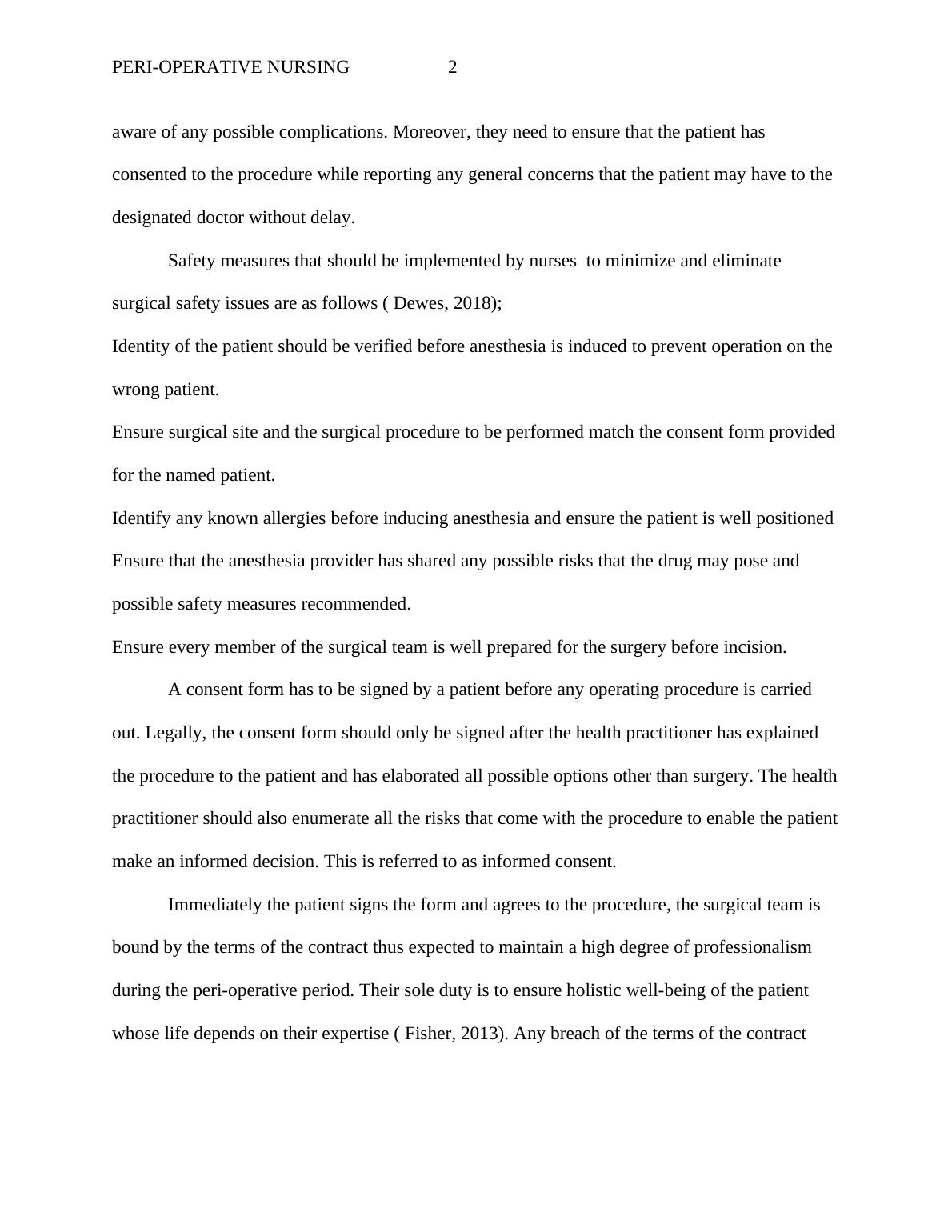Peri-Operative Nursing: Roles, Safety Issues, and Legal Aspects
Write a critical analysis of 500 words on an issue of safety or of legal responsibility that you explored in some depth, ensuring it is specifically related to the specialty area(peri operative ). Distinguish the roles and responsibilities of a nurse in the selected specialty practice area.
10 Pages2272 Words328 Views
Added on 2023-06-08
About This Document
This article discusses the roles of peri-operative nurses, safety issues that may arise, and the legal aspects involved to guarantee patient safety and well-being. It also covers patient confidentiality concerns and the right balance between a duty of confidentiality to patients and a duty to share information with carers. Additionally, it includes a life story of a Traumatic Brain Injury survivor.
Peri-Operative Nursing: Roles, Safety Issues, and Legal Aspects
Write a critical analysis of 500 words on an issue of safety or of legal responsibility that you explored in some depth, ensuring it is specifically related to the specialty area(peri operative ). Distinguish the roles and responsibilities of a nurse in the selected specialty practice area.
Added on 2023-06-08
ShareRelated Documents
End of preview
Want to access all the pages? Upload your documents or become a member.
Improving Peri-Operative Nursing Leadership of Alzheimer’s Patients
|8
|2248
|300
UNIVERSITY. NAME. STUDENT ID. ASSIGNMENT. Clinical inte
|10
|2917
|3
Surgical Safety Checklist: Components, Usefulness, Implementation, and Benefits
|8
|1639
|332
Healthcare Surgical Safety Australia Report 2022
|8
|2091
|15
Assignment About The Healthcare Professionals
|5
|989
|19
Intraoperative Nursing Care - PDF
|7
|773
|868



